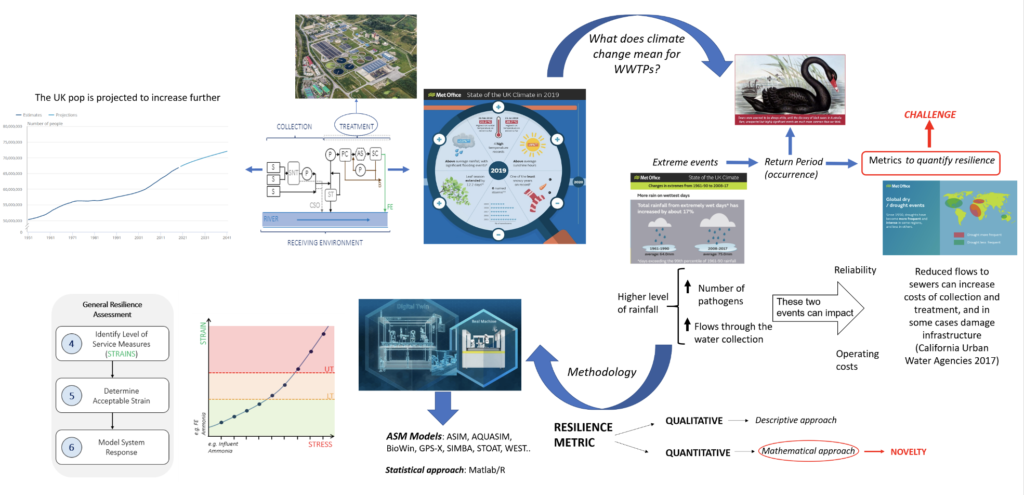Meet Anna Laino
Email: [email protected]
Academic and Industrial affiliations: Newcastle University, Scottish Water, Northumbrian Water Ltd.
Title of research project: Quantification of wastewater treatment resilience metrics

The purpose of this project is to develop a metric (or metrics) to quantify the resilience of wastewater treatment plants. This research project aims to understand how wastewater treatment systems will cope and recover under extreme events. Initially, a baseline resilience will be established and, after identifying resilience risk, the water companies will be able to develop interventions to mitigate for, adapt to, or cope with future challenges. Climate change is expected to influence variability in environmental conditions, influencing both the wastewater network and treatment systems. It is recognised that both stress and shock events, driven by climatic change, population growth, ageing infrastructure etc. will increase the variability of flows and loads of influent entering treatment works, and will increase the occurrence of internal asset failures. The current asset base and system operation may be incapable of responding to these events in order to prevent failure, and as such these events have the potential to cause service disruption and environmental pollution. These are the impact factors requiring solutions. Climate change will impact the environment where the water will be discharged, for example a river, because a longer period of low river flow, in addition to increasing water temperatures, will reduce dilution capacity and so water quality. More resilient treatment processes should be able to of coping with fluctuating flows and loads, with a reduction in final effluent failures due to shocks and stresses, and consequently there would reduce impacts on the environment.

